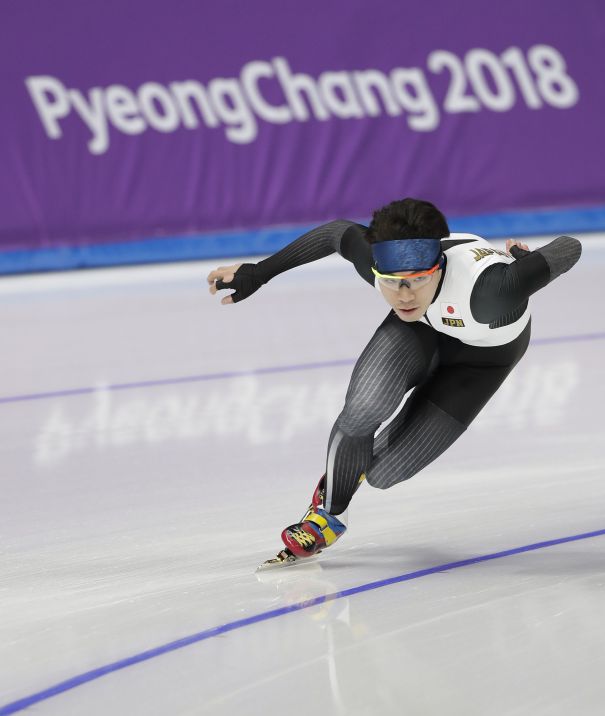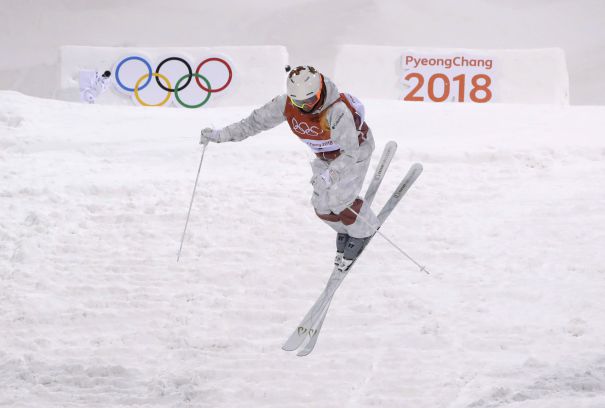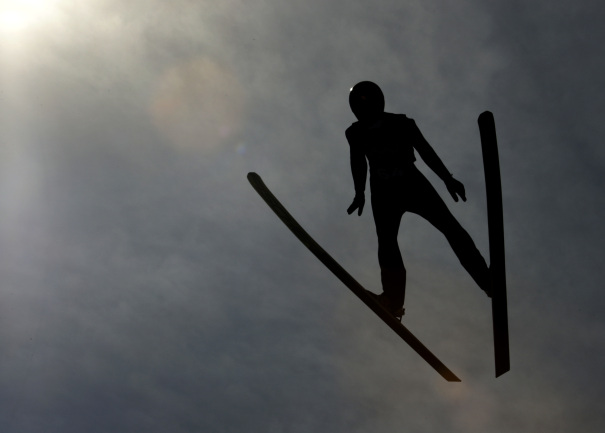Eurosport & Global Broadcasters Kick Off “Transformative” 2018 Winter Olympics
February 8, 2018Eurosport & Global Broadcasters Kick Off “Transformative” 2018 Winter Olympics
The 2018 Winter Olympics, which kick off in Pyeongchang, South Korea on Friday, are set to be a “transformative” event politically, digitally and from an international sports rights perspective.
Related
Twitter Shares Rise After Company Finally Reports A Quarterly Profit
North Korean leader Kim Jong-Un’s sister Kim Yo-jong is expected to attend the opening ceremony and lighting of the cauldron along with U.S. Vice President Mike Pence. Nearly 3,000 athletes from 92 nations will compete in more than 100 winter sporting events before closing with the passing of the Olympic torch, likely in front of First Daughter Ivanka Trump.
Friday’s ceremony, which has been organized by Korean director Song Seung-whan (Nanta), is set to celebrate Korean culture, history and pop music through the message of peace as North and South Korea agreed to parade under one flag.
These games will also be the first since Discovery struck an audacious $1.4B deal to acquire the European rights to the games for six years with a number of other new broadcasting partners coming on board for the first time as networks from around the world look to attract new, and often younger, audiences. They are a big moment for NBC (see separate story), while Eurosport will show 900 hours of live coverage and 4,000 hours in total via its TV channels and streaming service Eurosport Player.
The Pyeongchang games, which will see 22-year-old American alpine skier Mikaela Shiffrin aim to win multiple gold medals alongside Japanese ski jumper Noriaki “Legend” Kasai, who is making a record eighth Olympic appearance, are also being used by a number of broadcasters around the world to test their digital platforms and find non-linear audiences, as well as wow viewers through various virtual reality apps and new production techniques.

Pyeongchang is the culmination of a lot of hard work for Discovery after Chief Executive David Zaslav struck a deal in 2015 with the International Olympic Committee to cover the Olympics between 2018–2024. Although Discovery’s Eurosport held pay-TV rights to the Olympics for 20 years until 2012, it marks the U.S. giant’s first major move into exclusive sports rights.
Eurosport Chief Executive Peter Hutton tells Deadline, “We’re very excited for the Olympic Winter Games to start. For us, it’s the chance to put all the planning from the past two years into action. The scale of the opportunity for Eurosport is huge. Eurosport will deliver every minute of the Games across TV, the Eurosport Player streaming service and Eurosport.com.”
The deal covers nearly 50 territories across Europe, although with slightly more complicated arrangements in the UK and France, where the BBC and France Televisions had different deals with the IOC.
However, Discovery has already gone a long way to paying off the $1.4B after striking a series of sub-licensing agreements with a raft of broadcasters including NOS in the Netherlands, Rai in Italy, ARD and ZDF in Germany, RTE in Ireland and across much of Eastern Europe. It separately struck a long-term deal with the BBC, which already had the rights to a number of games. Discovery will air the exclusive rights in a number of major markets where it has a free-to-air presence including in Spain via its D-Max channel and across parts of Scandinavia.

In Germany, for instance, the two public broadcasters will air around 220 hours of linear programming as well as an additional 300 hours of online coverage, despite the fact that they didn’t start planning for the event until July 2017. Discovery has also signed a deal with SVOD service Amazon in Germany to air Olympics content from Eurosport.
In Italy, Rai will launch around 100 hours of sports on two free-to-air channels, meaning that “more of the Olympic Games will be shown than ever before”.
As host, Korea will pay particular attention to the games and after SBS was awarded the rights for games between 2018 and 2024 in 2011, the local broadcaster sub-licensed the rights to other broadcasters, including KBS and MBC. It’s not clear whether these will be show in North Korea, although in the past some coverage has aired, with a short delay. This comes as female hockey players from the North and South are set to make history by joining forces to take on Sweden on February 12.
CBC Canada’s coverage of Pyeongchang 2018, fronted by Scott Russell and Andi Petrillo, will be as in-depth as any Olympic Games the network has covered before, with live broadcasts from every venue. Seven Network in Australia, CCTV in China and BeIn Sports across the Middle East will continue to provide extensive coverage.

The 2018 games also kick off new deals across Latin America where Brazil’s Globo acquired rights through to 2032, and Carlos Slim’s telco/pay-TV operator América Móvil picked up the next four editions of the games for countries including Mexico, Argentina, Chile, Colombia, Uruguay and Venezuela, cementing its move into premium content.
A number of territories are using the games to experiment with new technologies.
Russia’s popular social networks VK and Odnoklassniki will air Olympics coverage, including live games, highlights and previews. Terrestrial broadcaster Channel 1 will also broadcast the games despite the fact that a number of Russian athletes have been banned following the doping scandal. A number of Russian winter Olympians that have not been caught up in the scandal will be able to participate wearing neutral uniforms, without the Russian anthem and flag, with a decision on whether 47 athletes who believe they have been wrongly caught up in the ban will find out on Friday whether they will be able to perform.
América Móvil is one of the companies, through its Clara Sports channel, that will look to bolster its move into virtual reality with the games. The main proponent of VR technology will be Eurosport, which earlier this week debuted its Cube studio that will use augmented reality, enhanced data and 360-degree graphics to create an immersive and interactive environment. The coverage will be presented by winter sports experts including six-time Olympic alpine skiing medallist Bode Miller, Germany’s gold medal winning ski jumpers, Sven Hannawald and Martin Schmitt as well as Swedish NHL legend and double Olympic ice hockey champion, Peter Forsberg will present.
Eurosport is to stream more than 50 hours of live VR coverage via a dedicated app, which will feature alpine skiing, curling, figure skating, ice hockey and snowboarding shot using the immersive technology. Consumers will be able to select their preferred viewing point of the action from up to six points through multiple cameras to create a 360-degree environment.

Hutton told Deadline, “We’re delivering something new and exciting for the Games using cutting edge technology. The Cube is one such example and something I’m particularly excited about. Presenters will be able to use augmented reality to give a far greater insight for fans watching the action. Fans will be able to understand what goes into a Gold medal performance. We want to raise fans understanding of what’s happening at the Games and help to make them experts.”
It comes as Discovery aims to make this year’s event the first fully digital Olympic Games with coverage across other nascent platforms including Facebook, Twitter and Snapchat.
“The Olympic Winter Games is an opportunity to show that Eurosport has changed. Yes, we’ve been here for over 30 years but we want to show viewers how we’ve evolved. We are more localized and we are more premium in both production and content. We want to bring the Olympic movement to newer and younger audiences – an aim we share with the IOC. Our new approach, products and content will deliver this,” he added.
However, one of Eurosport’s biggest challenges is measuring this audience. Given the complicated nature of measuring across multiple territories and screens, Discovery has unveiled a comprehensive measurement offering for advertisers that it calls the first of its kind. It has partnered with the IOC and ad giant Publicis Media on the new initiative, which aims to give it a better sense of who is watching. It looks to find “more people, across more screens, than ever before” and the new metrics, which together will capture “total video,” a blend of free-to-air, pay-TV, online and social engagement, will help it monetize this.
One other challenge will be replacing Hutton, who has led Eurosport since 2015, and is set to move to digital platform Facebook after Pyeongchang, and continuing to fight an even more crowded sports market.
However, he leaves the company in good hands with a number of games to come. Although the next two Olympics are in Asia, the 2020 Summer Games in Tokyo and the 2022 Winter Olympics in Beijing, which is not ideal in terms of time zones for its European channels, the pièce de résistance will surely be the Summer Olympics in 2024, which are held in Paris, headquarters of Eurosport, and the city that Discovery helped win the games over its main rival of LA. Let the games begin.
